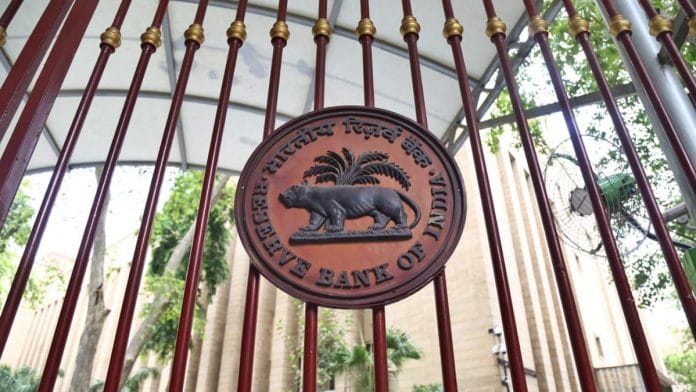Mumbai: Nearly two months after the Reserve Bank of India (RBI) issued guidelines for a one-time debt recast scheme for corporate borrowers, following the KV Kamath committee recommendations, not a single intercreditor agreement (ICA) has been signed by any lender for high value loans as few companies came forward for restructuring.
The ICA is signed by a consortium of lenders, by which they agree on the contours of the debt recast.
According to RBI norms, the ICA can be invoked if lenders representing 75 per cent by value of total outstanding credit facilities (fund based as well non-fund-based) and 60 per cent by number agree to the plan.
Bankers say not a single ICA has been signed so far for debt recast.
The Shapoorji Pallonji Group, which has decided to exit the Tata Group, has requested banks to restructure Rs 10,900 crore of its debt under the scheme, though banks are yet to sign the agreement.
Axis Bank, the third largest private sector lender of the country that announced its quarterly earnings Wednesday, said there was zero or negligible request for debt restructuring as on 30 September.
Under the RBI norms issued on 7 September, loans of Rs 1,500 crore will require Kamath panel’s approval.
So why are companies not applying for restructuring the debt when there is a stress in the system, as reflected by negative GDP growth forecasts by several agencies including the RBI?
Lack of awareness
According to officials involved with the formulation of the debt recast scheme and its monitoring, lack of awareness among small borrowers is one of the key reasons for the lacklustre response to the scheme.
“There are many borrowers, mainly the small and medium ones, who are not aware of such a scheme,” an official said.
“Three sets of agencies are there who could have promoted the scheme to the stress borrowers. One is the Indian Banks’ Association. They have not been proactive and push the banks to go for the debt recast. Also the industry bodies like CII and FICCI. They should have created awareness among their members about the scheme,” the official said.
“Everyone talks about the big firms. But what about the smaller entities? They are the real one who needs such a scheme,” the official said, adding the government has also not pushed the scheme. “People are demanding stimulus package. The scheme is not less than any stimulus.”
There are around 307 sectors to which banks extend loans. The KV Kamath committee has recommended financial parameters for 26 such sectors, which the banks need to adhere to for debt recast. Some of these include power, real estate, infrastructure, aviation, automobiles, cement etc.
Lenders were asked to form their own parameters for the sectors for which the panel has not made recommendations.
Also read: Why emerging markets like India are wary of using modern monetary theory to fix the economy
High provision, evergreening
According to bankers, the RBI-mandated requirement of 10 per cent provision on the outstanding dues is among the reasons behind the reluctance on part of lenders to restructure loans.
Lenders have to set aside 10 per cent capital of the outstanding loan of the borrower if they plan to recast the debt of borrowers impacted by Covid-19 pandemic.
“If a large corporate goes for a restructuring, their credit score may get impacted. Secondly, it requires 10 per cent provisioning for banks. These will be huge exposures. So even if a corporate asks for a debt recast, the banks will prefer giving additional funding rather than restructuring,” a senior bank official said, explaining the probable reasons for a tepid response.
“For small and medium enterprises, they [lenders] have done the same things by giving 20% under the government guarantee scheme. Most of the money has gone for adjusting the dues only,” the official added.
In May, the finance ministry had announced a Rs 3-lakh-crore corpus of collateral-free loan backed by government guarantee. Some lenders may have adjusted the outstanding dues of borrowers by providing them additional loans, the bank official indicated. In banking parlance, this practice is known as evergreening.
Bankers also said many large corporate entities may have credit facilities sanctioned but were not used earlier and probably drawing from those unused funds now to avoid restructuring.
A study by rating agency Crisil, which was released after RBI issued norms of the recast scheme, said two-third of the companies that are rated by the agency will be eligible for debt recast. It had studied its rated portfolio of over 8,500 companies after sorting them by rating, sector and moratorium availed. The assessment was based on financial projections and excluded SMEs and financial sector companies.
Deadline
Time is also running out for companies to apply for the scheme. While the RBI had mandated that ICA needs to be invoked by 31 December for debt recast, banks have set their own deadlines for submission of applications.
For example, the State Bank of India (SBI), India’s largest lender, has set 15 November as the last date for application from borrowers having exposure of Rs 1500 crore or more. For other borrowers, the deadline is 30 November, though SBI said it would be ‘advisable’ to submit applications by 15 November.
The bank is also charging a process fee for restructuring the corporate loans, which is 0.25 per cent of the aggregate limits of the borrower.
Also read: Revival in demand & business activity push Indian economy’s animal spirits up in September






